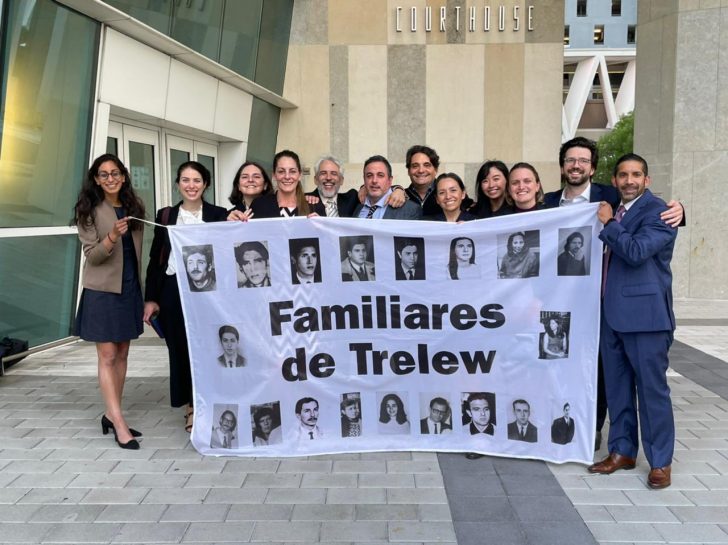Just days before the 50th anniversary of the Trelew Massacre, former marine Roberto Bravo was found responsible for crimes committed at the Almirante Zar navy base, where 16 activists of political organizations were killed. A jury for the US Southern District Court of Florida decided that he is responsible for the executions of Eduardo Capello, Rubén Bonet, and Ana María Villarreal de Santucho and the attempted extrajudicial execution of Alberto Camps. For these acts, he must now pay USD 24 million in damages.
The civil trial was held under the Torture Victims Protection Act (TVPA), a 1991 US law that allows victims of torture and extrajudicial killings and their families to seek civil damages against the perpetrators.
“We are very happy. This is a big step toward requesting extradition so that Bravo can be tried in Argentina. I’ve devoted a significant part of my life to seeking justice for those responsible for the torture and attempted murder of my father,” said Raquel Camps, Alberto’s daughter, who was in Miami for the trial, along with her brother Mariano and other relatives of the victims.
“This is a historic ruling. The members of the jury did not believe Bravo’s account of the activists’ escape attempt and his claim that he acted in self-defense. Beyond the fact that the verdict addresses what happened to these four victims, in the end, it establishes that he was responsible for the massacre,” explained Sol Hourcade, the coordinator of the CELS Memory, Truth and Justice team, which accompanied the civil litigation in collaboration with the Center for Justice and Accountability (CJA) of the United States. During the trial, Bravo testified that one of the activists had snatched a pistol from one of the marines and that he responded to this alleged attack.
In 2012, a criminal trial was held in Argentina before the Federal Court for the city of Comodoro Rivadavia, culminating in life sentences for former marines Luis Sosa, Emilio Del Real, and Carlos Marandino for their roles in the massacre. But Bravo, who had been sent to the United States in 1973 as a military attaché for the Argentinian Embassy, could not be brought to trial. After retiring from the Navy in 1979, Bravo remained in the United States, where he is now a citizen. For many years, his whereabouts and his physical appearance were unknown.
Within the framework of the criminal proceedings initiated by the victims’ relatives in Argentina, a request for his extradition was made, however, it was denied in 2010. Another extradition request is currently being processed pending the ruling of Federal Judge Edwin G. Torres.
In this context, the CJA—with the law firms Keker, Van Nest & Peters LLP and Markus / Moss PLLP—filed a civil lawsuit on behalf of the relatives of four victims, with the support of CELS. This proceeding moved forward separately from the extradition request.
The shootings
In the early morning hours of August 22, 1972, 19 political prisoners in custody at the Almirante Zar Naval Base in Trelew were gunned down by members of the Argentine Navy. Sixteen of them died: Carlos Heriberto Astudillo, Rubén Pedro Bonet, Eduardo Adolfo Cappello, Mario Alberto Delfino, Carlos Alberto Del Rey, Alfredo Elías Kohon, Clarisa Rosa Lea Place, Susana Graciela Lesgart, José Ricardo Mena, Miguel Ángel Polti, Mariano Pujadas, María Angélica Sabelli, Humberto Segundo Suárez, Humberto Adrián Toschi, Jorge Alejandro Ulla and Ana María Villarreal de Santucho. Three survived: María Antonia Berger, Alberto Miguel Camps and Ricardo René Haidar. Berger, Camps and Haidar managed to give testimony on the events and the perpetrators before ultimately being disappeared by the last civil-military dictatorship.

